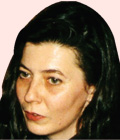Providing INSPIRE Measurement Data
Friday, 29 May 2015, 0900 – 1030 hrs
WORKSHOP DESCRIPTION
In the INSPIRE framework, environmental data have to be provided for several of the 34 themes described in the Directive. Some of these data are pertain to observations or measurements of environmental phenomena, often collected through sensors; these are usually included in monitoring networks specifically designed to address some environmental issues and related policies.
The Environmental Monitoring Facilities (EF) data model describes environmental monitoring facilities as spatial objects in the context of INSPIRE, and includes observations and measurements (O&M) linked to the environmental monitoring facilities.
This workshop wants to present to the participants the basic concepts needed to understand the EF data model, the O&M framework and the standards useful to provide observations and measurement data within INSPIRE.
In addition, the workshop will focus on the INSPIRE EF, O&M as well as the Sensor Observation Service (SOS) standards, to discuss concrete implementations of INSPIRE based Environmental Monitoring Facilities data services. Problems encountered and ways forward towards successful data delivery in this area will be presented and discussed with the audience. In this context, the workshop will also introduce the new initiative of the INSPIRE Thematic Clusters Collaboration Platform, developed to support INSPIRE implementation in the Members States. The primary learning objectives of the workshop are the following:
• understanding the basic concepts related to the provision of environmental monitoring data in INSPIRE, through the EF and O&M data models and SOS standards Learn and discuss about examples and concrete issues on the implementation of INSPIRE based Environmental Monitoring Facilities data services
TARGET AUDIENCE
Block 1: Persons interesting in providing observation and measurement data under INSPIRE. As this block is intended as an overview, this is a good way of learning the basics in this area.
Block 2: In this block we go into the technical details of implementing data services for the INSPIRE Environmental Monitoring Facilities Theme. This block is intended for more technical participants, so those who will actually be creating such systems.
WORKSHOP REQUIREMENTS
Instructions for participants:
- A laptop is not required for attendees, but it can be useful in case they are interested to search related documentation on-the-fly.
- Pre-workshop preparation: It will be desirable that attendees will think in advance about relevant implementation examples and issues related to the EF, O&M and SOS models and standards.
DETAILED WORKSHOP AGENDA
Section 1: Overview INSPIRE Environmental Monitoring Facilities, Observations & Measurements Standard as well as Sensor Observation Service
This block provides an introduction to the relevant standards for the provision of observation and measurement data within INSPIRE. It provides newcomers with an overview of the standards available and the possibilities enabled through these standards. In addition to presentations detailing the specifications listed, time is foreseen for detailed questions on the use of these standards in real world situations, allowing participants to assess the usefulness of these standards in their work.
Spatial to Observation – what are observations doing in an SDI?
Relevant INSPIRE Themes – in which INSPIRE Themes are observations included, what types of data are provided
What’s an observation? An introduction to the ISO 19156 Observations and Measurements data model (O&M). Includes information on how this standard has been included in INSPIRE, how various types of data are to be provided as well as how the individual parts describing the observation are linked together
SOS in a nutshell – a short introduction to the Sensor Observation Service (SOS), highlighting both the similarities and differences to WFS. (why do we need SOS) Also includes insights on how to deal with the area of overlap WFS and SOS pertaining to measurement metadata as well as various options for result encoding and access.
Tricky Bits – includes how to cross-reference between SOS observations and WFS features, including observations references from the INSPIRE data models. Also how to model observations in areas such as biodiversity observations.
Overview of existing resources on Observations and SOS in INSPIRE
Overview of existing and upcoming extensions to INSPIRE data models
Section 2: Implementation INSPIRE Environmental Monitoring Facilities, Observations & Measurements Standard as well as Sensor Observation Service
In the second block we go towards concrete implementations of INSPIRE based Environmental Monitoring Facilities data services. We describe problems encountered and ways forward towards successful data delivery in this area. 52°N INSPIRE Implementation:
- As part of the process of formalizing SOS as an INSPIRE download service, a reference implementation was created based on the 52°N SOS implementation. Austrian Air Quality Implementation:
- Based on the experiences gained from various European research projects, the Austrian Environment Agency, in cooperation with the Austrian Institute of Technology, has developed an INSPIRE compliant SOS implementation for the provision of time series data. Ground Water Level Implementation (Sylvain)
- Based on Inspire EF & D2.9 experience and work under OGC Hydro DWG & GEOSS AIP Water, the French Geological Survey has set up a SOS implementation for the provision of groundwater level time series data. Geonode/Get-it Starter Kit Implementation –
- In the context of the RITMARE (www.ritmare.it) project, CNR-ISMAR and CNR-IREA have developed a software suite that integrates 52°North SOS on the GeoNode platform and provides a web-form based SensorML metadata editor which enables users to input sensors information

Umweltbundesamt Austria
Austria

Institute of Marine Science National Research Council
Italy

Joint Research Center
Italy
BRGM
France